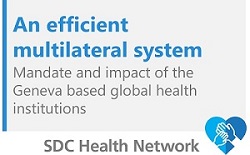
| An efficient multilateral system - webinars series
Multilateral cooperation is an essential pillar of Switzerland's International Cooperation Strategy 2021-24. Switzerland supports 16 key multilateral organizations. As the host country of the “global health capital" Geneva, where most global health institutions have their headquarters, Switzerland has a special responsibility in making the various actors work more efficient. In this context, in 2022 the SDC Health Network organized a series of webinarsto explore the different mandates, roles and ways of working both at the global and at the country levels of Geneva-based global health organizations.
>More information, session materials
|
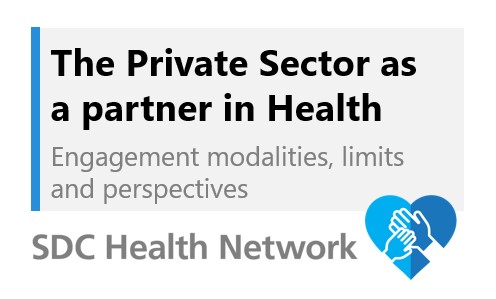
| PSE in Health Cooperation - webinars series
In 2021, the SDC Health Network organized a series of webinars on private Sector Engagement in Health Cooperation, to explore the different forms of private sector engagement in health, and discuss challenges and opportunities in public-private partnerships.
>More information, session materials and discussion board
|
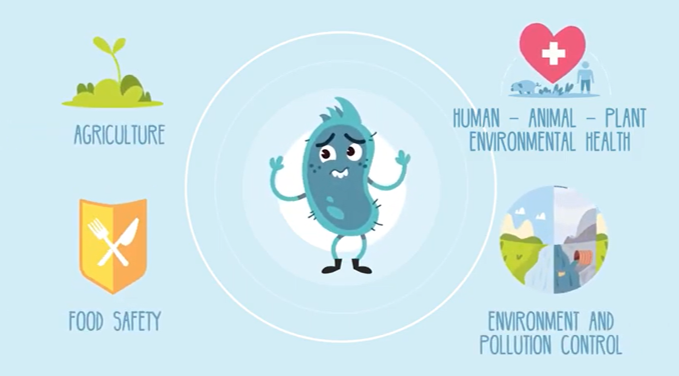
| SDC Learning Event: Antimicrobial resistance - a silent pandemic
April 30, 2021 - The SDC Health, A+FS and Water networks co-organised a learning event on antimicrobial resistance (AMR) to raise awareness on a growing cross-sectorial challenge. SDC colleagues from HQ and from the field presented projects and intiatives across different areas, highlighting current efforts and new opprotunities to adress this urgent issue.
For more details, see the event summary and the following additional resources:
Presentations and further information on SDC programmes:
- One Health projects in the Horn of Africa, Lensse Gobu Bonga, Swiss Embassy Ethiopia:
One Health for Humans, Environment, Animals and Livelihoods project, HEAL - overview
Additional resources on AMR: - Monitoring global progress on antimicrobial resistance: Tripartite AMR country self-assessment survey (TRACSS) 2021-2020, Global Analysis Report, FAO, OIE, WHO ( PDF) - Pulling Together to Beat Superbugs: Knowledge and Implementation Gaps in Adressing Antmicrobial Resistance (2019), World Bank Group ( PDF) (image extracted from the video Antimicrobial Resistance - African Region FAO)
|
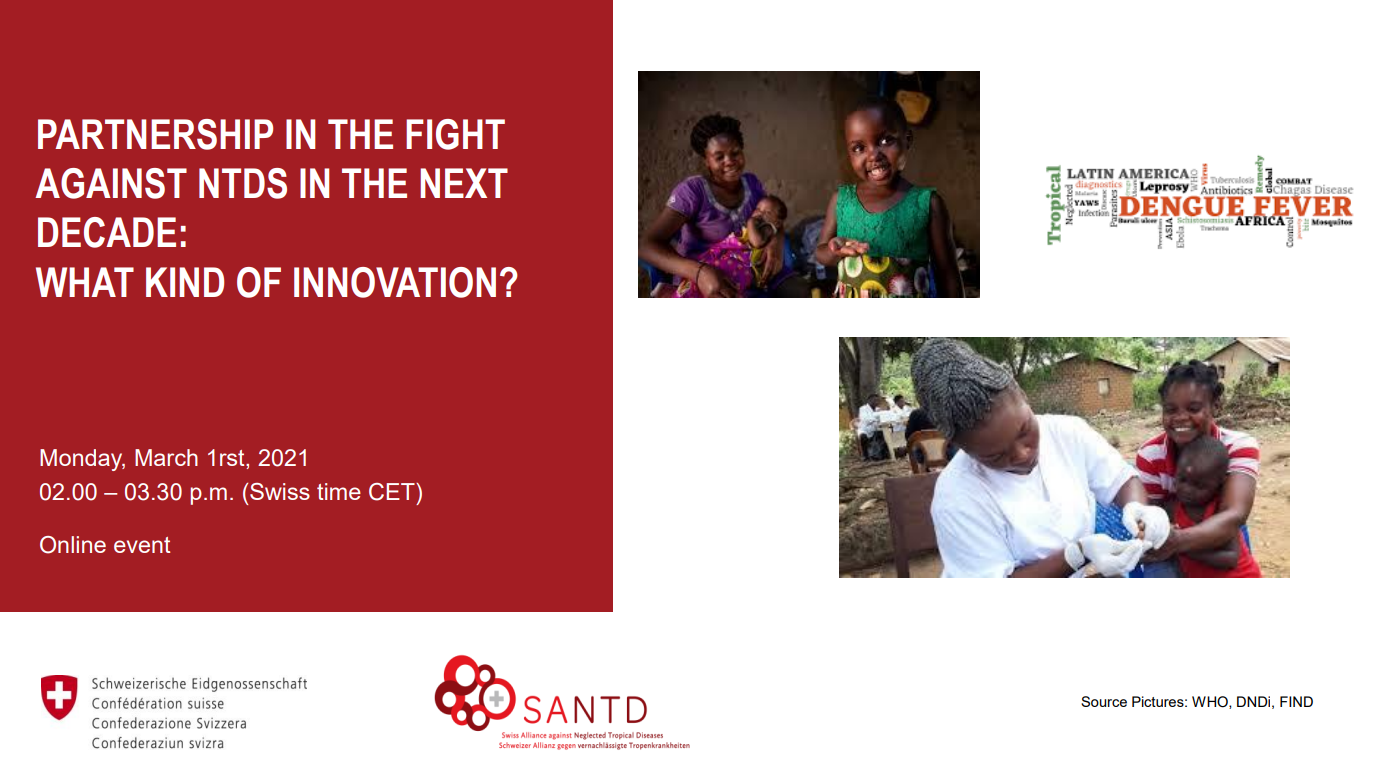
| Partnership in the Fight against NTDs in the Next Decade: What Kind of Innovation?
March 1, 2021 – The Swiss Alliance against Neglected Tropical Diseases (SANTD), in collaboration with SDC, held a webinar on the transition from a disease-specific approach to cross-cutting collaborations in fighting against Neglected Tropical Diseases (NTDs), highlighting the importance of health determinants and innovation. Partners from different sectors shared their experiences, followed by a panel discussion on approaches and innovations for more intersectoral interventions in the fight against NTDs.
Guest speakers: Dr. Mwele Malecela (WHO); Anthony Mann (Novartis), Dr. Olaf Valverde (DNDi), Dr. Joseph Ndung'u (FIND), Dr Jutta Reinhard-Rupp (Merck Global Health Institute) and Dr. Stefanie Knopp (Swiss TPH).
Panelists: Dr Alexander Schulze (SDC), Dr Lutz Hegemann (Novartis), Dr Mwele Malecela (WHO) and Dr Peter Steinmann (Swiss TPH)
For further details: presentations and event recording
|
| | The Swissmedic Marketing Authorisation for Global Health Products (MAGHP) Procedure – Progress update and lessons learned
February 23, 2021 – The SDC held a virtual event in collaboration with Swissmedic, the Swiss Agency for Therapeutic Products, and an expert panel from national medical authorities (Tanzania, Ghana) and the World Health Organisation (WHO). The main objectives were to present the Swissmedic Marketing Authorisation for Global Health Products (MAGHP) and its added value in terms of capacity strengthening and access to medical products, particularly in low-income countries. Guest speakers presented lessons learned from first experiences, in particular in Tanzania and Ghana, and discussed the main benefits and challenges of MAGHP's procedure, as well as possible ways to move forward.
Presentations and speakers:
Moderator: Dr. Alexandre Schulze, co-head of Global Programme Health, SDC
|
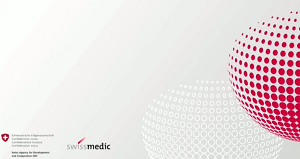
| Toward an equitable access to SARS-CoV-2 vaccines for all: what is GAVI COVAX AMC offering to lower income countries?
February 17, 2021 – The SDC Health Network organized a webinar with experts from GAVI and the Asian Development Bank. The main objectives were to get to know the different types of COVID-19 vaccines, as well as their advantages and disadvantages in different contexts, and to understand the financial and procurement mechanisms proposed by GAVI and multilateral development banks, such as the World Bank and the Asian Development Bank (ADB). 80 participants from 60 countries attended this event. Here are the presentations shared:
|
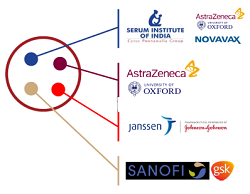
| Testing for SARS-CoV-2: Ensuring access to COVID-19 rapid diagnostics tests for LMICs December 9, 2020 – The SDC Health Network organized a webinar with experts from FIND and the Global Fund.
The main objectives were to understand the value of early and mass testing to combat the COVID-19 pandemic; get to know the different types of COVID-19 tests and identify the most appropriate to your context; be informed about global efforts on R&D, procurement and distribution of COVID-19 tests; and reflect on SDC intervention opportunities at the country level.
57 participants fom 35 countries attended this event. Here are the presentations shared.
|
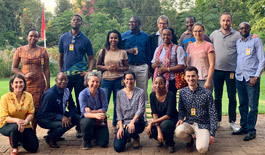
| Regional F2F SENAP 2019 «Innovations for health»
Venue: Nairobi, Kenya, 9-12 April 2019
This year’s regional F2F focused on “Innovations for health”. Experiences have shown that innovations in health, and other sectors have played a key role in the decisive advances that saved and improved millions of lives in recent years. To maintain but above all to continue these advances, a clear agenda and vision of innovation is needed in order to fully tap into the potential and human capital available. However, what is innovation? From a development perspective, an innovation is a new solution with the transformative ability to accelerate impact. Where inadequate practices slow progress, more effective and relevant approaches must be found. The future therefore depends on our ability to innovate to accelerate progress. In this sense, the SENAP division has set itself innovation management as a priority for the period 2018-2019, resulting in various new approaches piloted and initiated in our bilateral work. The regional F2F health builds on these developments and experiences to further increase our impact as well as relevance, by focusing on how as a SONAP team can we use innovation to make health systems more efficient, resilient and sustainable.
|
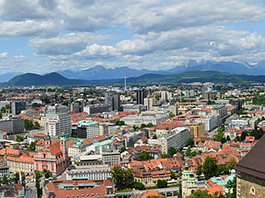
| Regional Study Tour on Primary Health Care
Venue: Slovenia, January 2019
The Western Balkan Division organized a regional study tour on primary health care in Slovenia between 28.1. -1.2.2019. The objective of the Study Tour was to learn from a country in the region that is a member state in the European Union on the following aspects: The Public Health System in Slovenia (roles and responsibilities of the different actors, Structure and Financing, decentralization level, regulation) including Public and Private sector The Health care services at Primary Health Care level with the following aspects: Role of nurses and doctors, management structures, quality assurance, Health Information System/Data, home based care models and dealing with demographic change The organization and functioning of the integrated care model in remote and urban areas Health Promotion and Prevention – system in place, financing, results
Read more
|
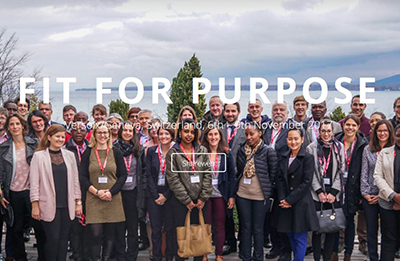
| Global Face2Face Health 2017 “Making SDC fit for purpose: effective contributions for improved health and wellbeing”
Venue: Versoix/Geneva, Switzerland 6th – 9th November 2017
SDC’s health engagement needs to be made fit for the ambitions of the Agenda 2030, but also for current regional epidemiological trends, transformations of national health systems, global health challenges, as well as current global and national health policy debates. The global F2F meeting aims at sharing experience and generating ideas to adapt SDC’s bilateral and global health engagement to these trends, and explores potential and existing Swiss comparative advantages in health. Moreover, the meeting will aim at enhancing the leverage of national and regional evidence at global policy level – and vice versa - by establishing a synergistic, mutually beneficial link between bilateral and global initiatives. A reporting including video statements, presentations, summary reports and pictures of participants and the event is available here: www.globalf2fhealth.ch
|
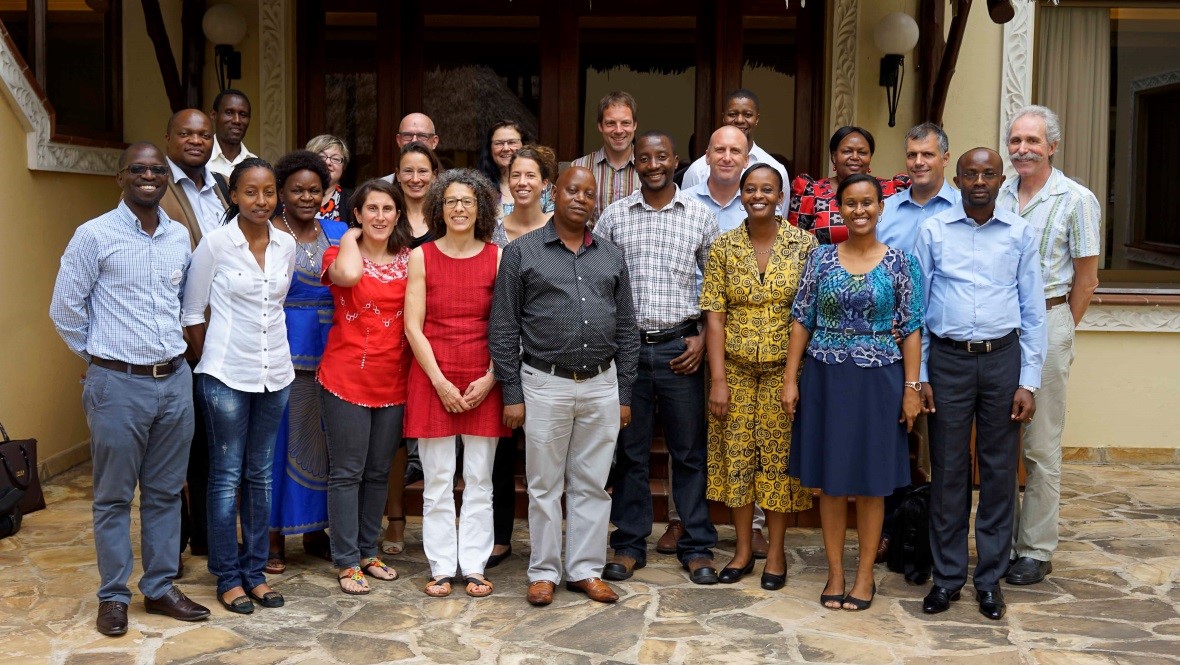
| Regional Face2Face 2016 "Sustainable Financing for Health and HIV/AIDS"
Venue: Dar-es-Salaam, Tanzania, 8th – 12th May 2016 This year, the East and Southern Africa Division in close cooperation with the SDC health network, organised a regional face-to-face meeting for knowledge sharing and learning in Dar-es-Salaam, Tanzania, from 8-12 May 2016. The aim was to learn, discuss and exchange experiences on Sustainable Financing for Health in the context of Sustainable Development Goals. During three days SDC collaborators provided insights from their bilateral and global projects and policy work. The discussions were enriched by Tanzanian policy makers and health programme managers from different organizations. On the last day, the HIV-AIDS Community of Practice exchanged experiences of HIV-AIDS mainstreaming. Content:- From MDGs to SDGs – what are SDC priorities in health?
- Health Financing – the Tanzanian experience
- Public Health System structure – Impressions from the field visits
- Mobilising and allocating resources
- HIV/AIDS Community of Practice (COP)
A social reporting including video statements, presentations, background papers, working documents and pictures of participants and field visits is available on here. To sign in, use: Name: Documentation and Password: 2016HealthDaressalaam
|
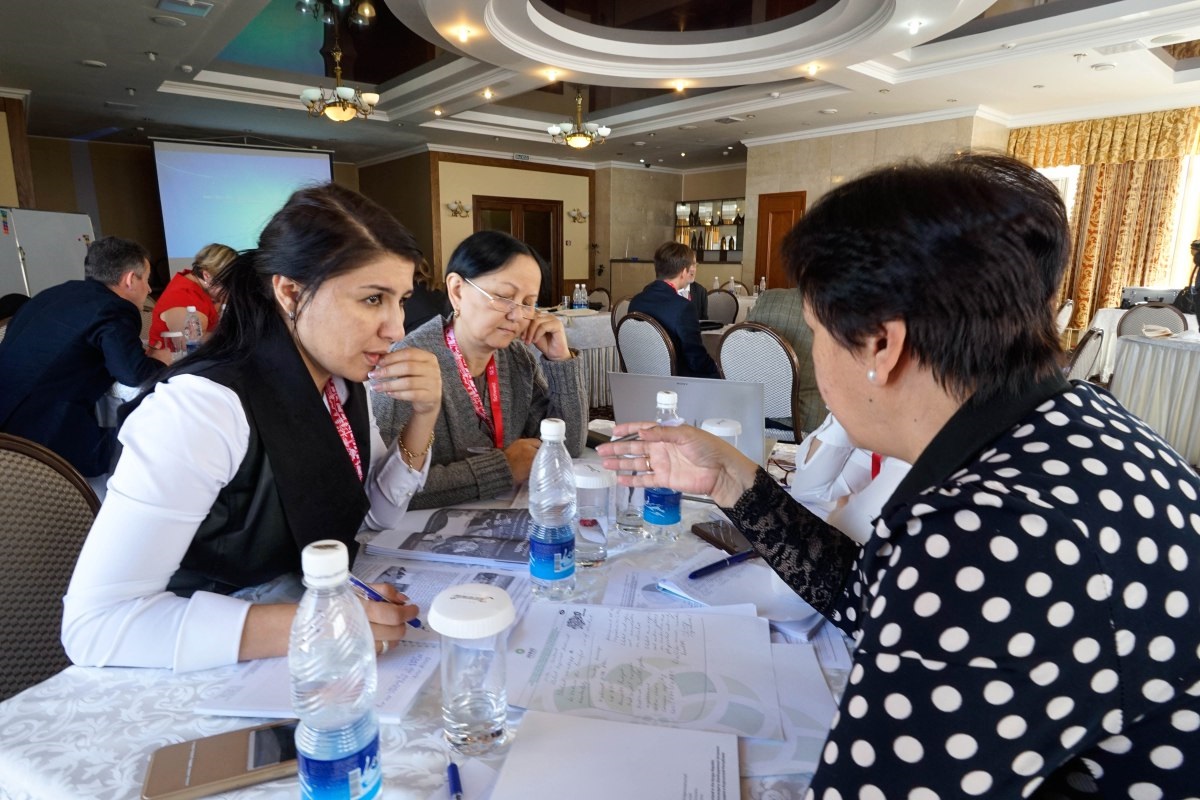
| Regional Face2Face 2015: “Strengthening Health Systems to address Non-Communicable Diseases” Venue: Bischkek, Kyrgyzstan, 3rd – 5th November 2015
In 2015, SDC’s Cooperation with Eastern Europe in close cooperation with the SDC health Network organized a regional learning event, taking place November 3 – 5 2015 and held in Bishkek, Kyrgyzstan. Its aim was to strengthen and improve the knowledge and skills in identifying, planning, monitoring and steering the most appropriate cost-effective interventions aimed at tackling the issues related to the increasing burden of Non-Communicable Diseases (NCDs). NCDs are the most prominent cause of mortality and morbidity in Eastern Europe and Central Asia (EECA).
It was a training opportunity for Swiss Cooperation Offices staff in Eastern Europe and Central Asia working in the health domain, for partners, and for program managers and thematic staff based at HQ. With regards to the key speakers and other resource persons, the regional competencies were used first, in order to promote East-East exchanges and create both dynamics and synergies that could continue beyond the learning event.
For a reporting including video statements, photo slides, background papers and presentations, visit the website.
|
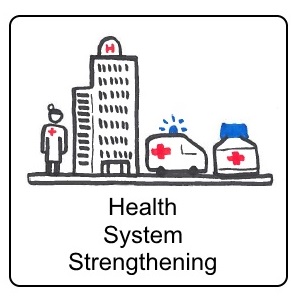
| E-Discussion "Health System Strengthening" (HSS)
The E-discussion on HSS was conducted from 23rd November to 4th December 2015.
Over-arching topics discussed:
- Assessing strengths and gaps in HSS to identify where support is needed and by whom
- Lessons learned from different interventions and outcomes (e.g. International Health Partnership methodology Mozambique).
- Measurability of HSS
- Actors: Who does what and how, and with what results? What can SDC expect from different players?
- Stewardship: As only a few governments have the capacity or the will to lead HSS, who should lead and on which levels? What do we mean by stewardship?
- Influencing policy dialogue: Alignment and coordination.
You will find more information as well as access to the contributions in the CUG.
|
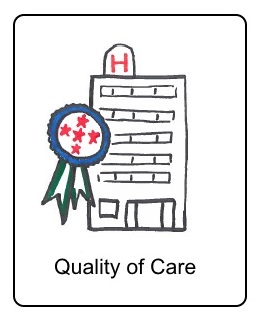
| E-Discussion "Quality of Care"
The E-discussion on Quality of Care took place between 2nd and 14th of February 2015.
By the end of this E-Discussion participants were supposed to have:
- Established a basic common understanding of Quality of Care
- Gained a solid overview of different approaches to improve Quality of Care
- Shared experience and identified technical resources
- Connected people (across countries and institutions)
- Discussed relevant guidance documents and concepts
- Assessed the needs for further support and advice.
Summary of the E-Discussion "Quality of Care"
You will find more information in the CUG.
|
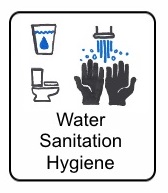
| E-Discussion "WASH"
WASH (water supply, sanitation and hygiene) in health facilities is a relevant issue for many of SDC’s water and health programmes. Specific guidance on how to consider the specificities of WASH in health facilities are helpful for programme staff when planning and implementing programmes. The objectives of the discussion were: - To establish a basic understanding of the needs regarding water, sanitation and hygiene (WASH) and recommended practices in Health Facilities
- To facilitate access of the field staff involved in planning and implementation of programs for WASH in Health Facilities to experiences of other programs, relevant guidance documents and expert contacts
- To assess needs for further support and advice of field staff involved in planning and implementation of programmes for WASH in Health Facilities in low resource contexts
Some learning results:
- Health facilities and their employees have a high reputation in communities and their voice would be heard. But with great power comes great responsibility. It is therefore important to educate/train staff in order to disseminate knowledge and demonstrate model behaviour regarding hygiene. Health facilities might have a high potential to trigger behaviour change not only in patients but also in visitors and staff as well as to raise awareness about different needs of various social groups (gender specificities, aged, disabled etc.). However, the transmission from the clinical, somehow artificial environment in the health center, into everyday life at home might not be as easy as it seems at first sight. (p. 4-5, summary).
- The conclusion of the second discussion phase on WASH in Health Facilities might be that we do not have to reinvent the wheel. Tools for the assessment of the current WASH situation exist and adequate technologies have been introduced in health centers before. There is, however, a great potential for the exchange of information within and between the different sections and institutions of the RésEAU and the Health Network and a joint approach to develop general guidelines has been proposed. (p. 6, summary)
Summary of E-Discussion WASH
|
